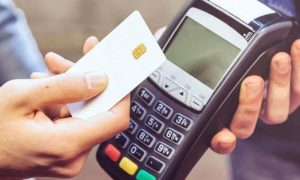By Cynthia Ezekwe
The payment of bills electronically, also known as E-bills payment,plunged 44.86 per cent in February 2023 to N90.93 billion from N164.89 billion recorded in the previous month of January.
This was disclosed in a recent report by the Nigeria Inter-Bank Settlement System Plc (NIBSS), which showed that the value of utility bills payment fell to a two-year low despite the central bank’s cashless policy aimed at boosting cashless transactions across the country.
NIBSS describes e-bills as daily bill transactions that are accessible and seamless. It involves the payment of bills, fees, levies, premiums, and subscriptions through payment channels such as internet banking, mobile money banking, USSD, and agent networks.
The cashless policy of the apex bank saw many Nigerians hope that e-bills payment will increase, as the CBN urged customers to use alternative banking channels such as the internet banking, mobile banking apps, USSD, cards/POS, eNaira, to conduct their banking transactions.
Speaking on the February decline, Victor Olojo, the national president, Association of Mobile Money and Bank Agents in Nigeria (AMMBAN), explained that the CBN’s naira redesign policy and resultant cash crunch depressed the economy and led many point of sales terminal operators to shut down their businesses.
According to Olojo, many businesses, weighed by the rippling effect of the cash crunch, were not able to run optimally. This, he explained, is coupled with the technology glitches seen in many online banking transactions, which can be tied to the activity of the past few weeks.
“Also, PoS agents which are crucial to e-bills did not open their stalls too, which impacted e-bills. Many of the agents who could have helped, did not open and were out of business, which led to this reduction,’’ he added.
Olojo further explained that the purchasing power of many Nigerians declined as a result of the policy, as they couldn’t afford to pay some of their bills.
He further noted that e-bills payments are disposable expenses, which Nigerians can do once they have excess cash with them.








